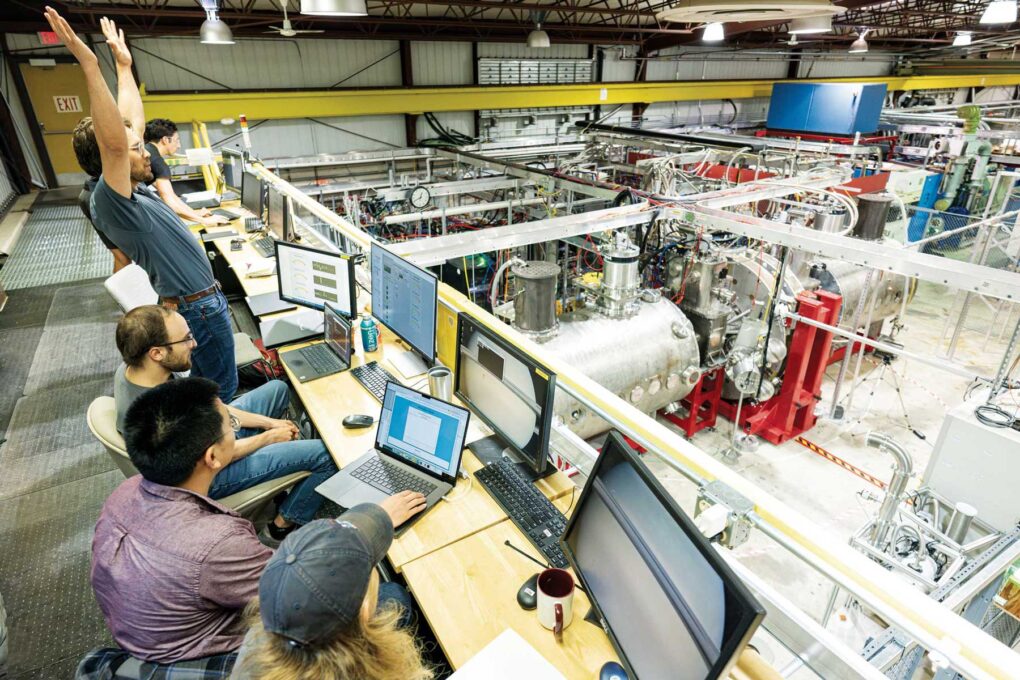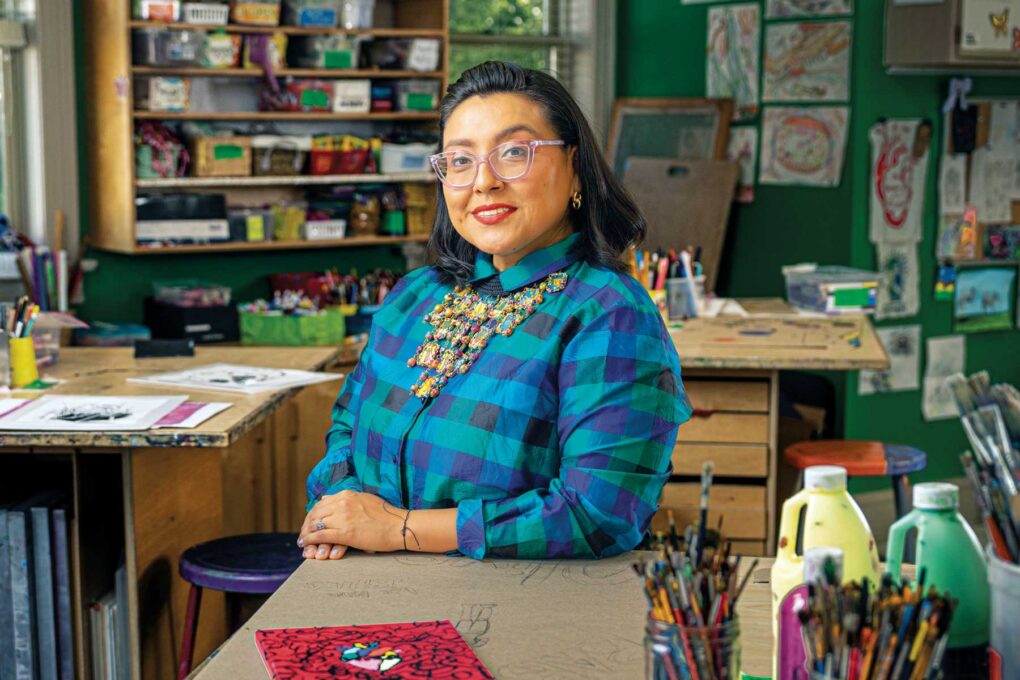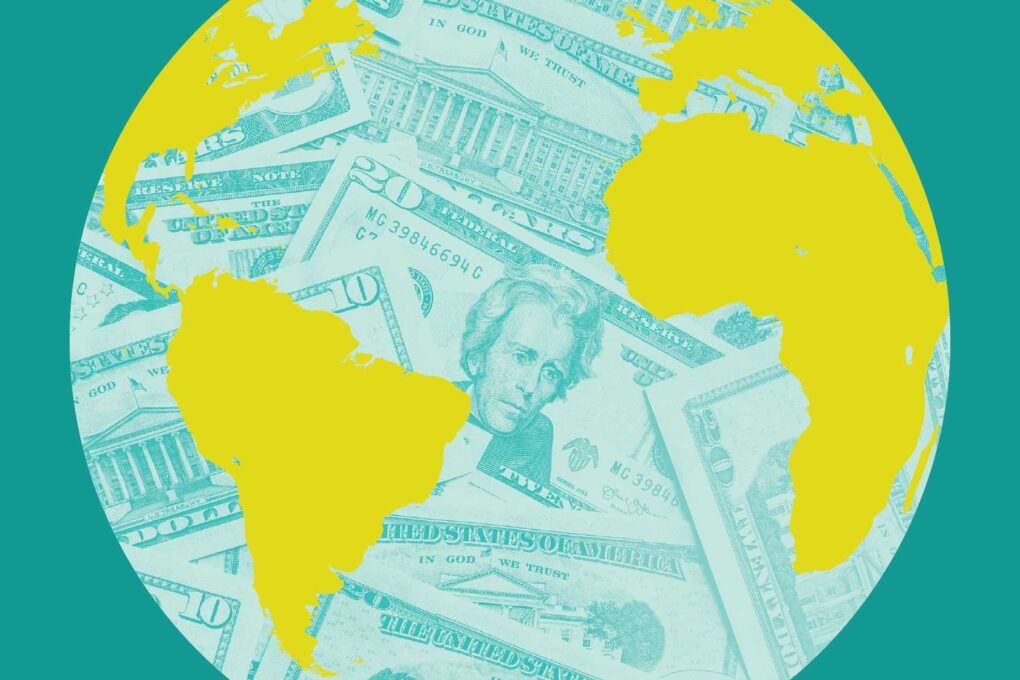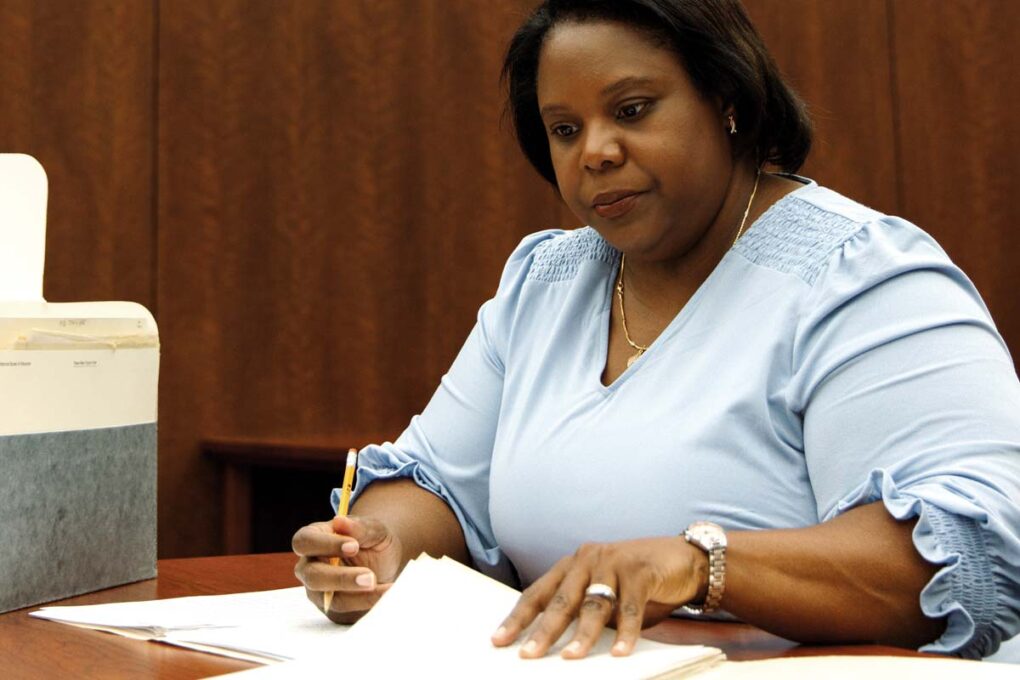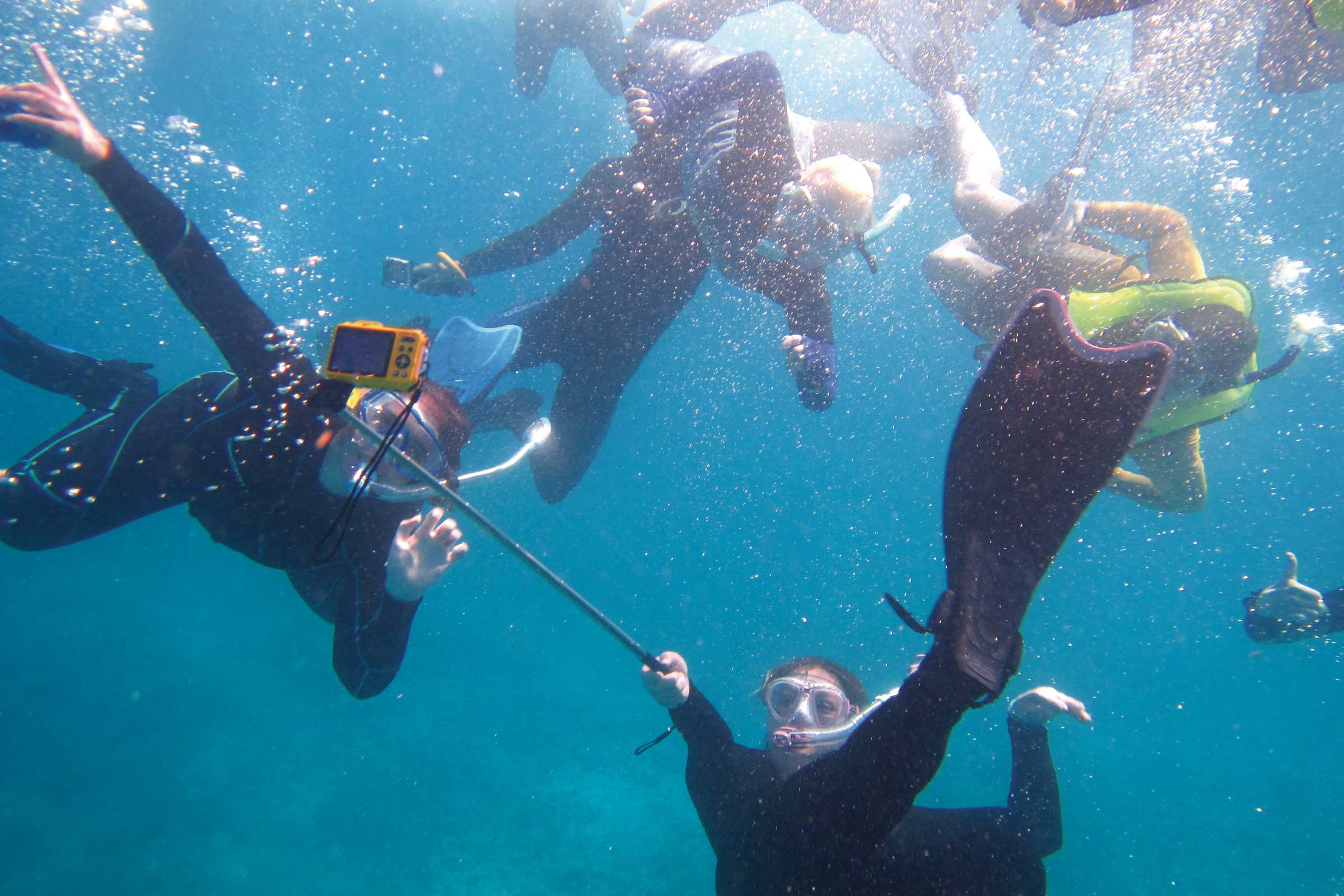
Night snorkeling. It’s the memory that stands out most to Jumana Tanner (’25) when she looks back at her experience studying abroad in the Florida Keys. She and a group of fellow students were out with their professor searching for ostracods. These tiny bioluminescent crustaceans flash in the water like little blue holiday lights. But before they could experience the twinkling display, the group of intrepid researchers were swarmed by spindly, ballyhoo fish that were attracted to their flashlights.
“All of a sudden, there’s fish flying at you in your face,” says Tanner, who graduated in August with majors in zoology and neurobiology. “I’ve never seen anything like this in my life.”
In January of 2023, this group of what Tanner calls “ballyhoo survivors” were part of the inaugural cohort of the UW Marine Biology in the Florida Keys study abroad program, which was full of once-in-a-lifetime opportunities like this one. For two weeks, students got a hands-on introduction to coral reefs, seagrasses, mangroves and other coastal marine habitats.
This immersive aspect was especially appealing to Tanner as a curious, adventuresome and overall exuberant individual. She applied in the fall of her junior year, her purpose statement: to bridge the gap between science, communication, art and people.
“I want to conduct research and teach science to the public so that I can be a part of making sure people understand science,” she says, adding that she hopes to pursue a graduate degree in marine biology. “I want to work in education, but I want to start with research. Maybe someday I’ll have some type of lab on a boat where I take students out and have them connect something with themselves, the water, science and art — something like ‘The Magic School Bus,’ but on the water.”
Her avant-garde style is built around meeting people where they are, which is exactly what the marine biology experience did for her.
“I grew up swimming, but I’d never snorkeled before, and I’d never been on a boat in the ocean,” she says. “It was huge personal growth for me to start learning things about myself while also trying to swim in this big ocean. It took everything that I love and everything I’m continuing to pursue, and it put a magnifying glass on it.”
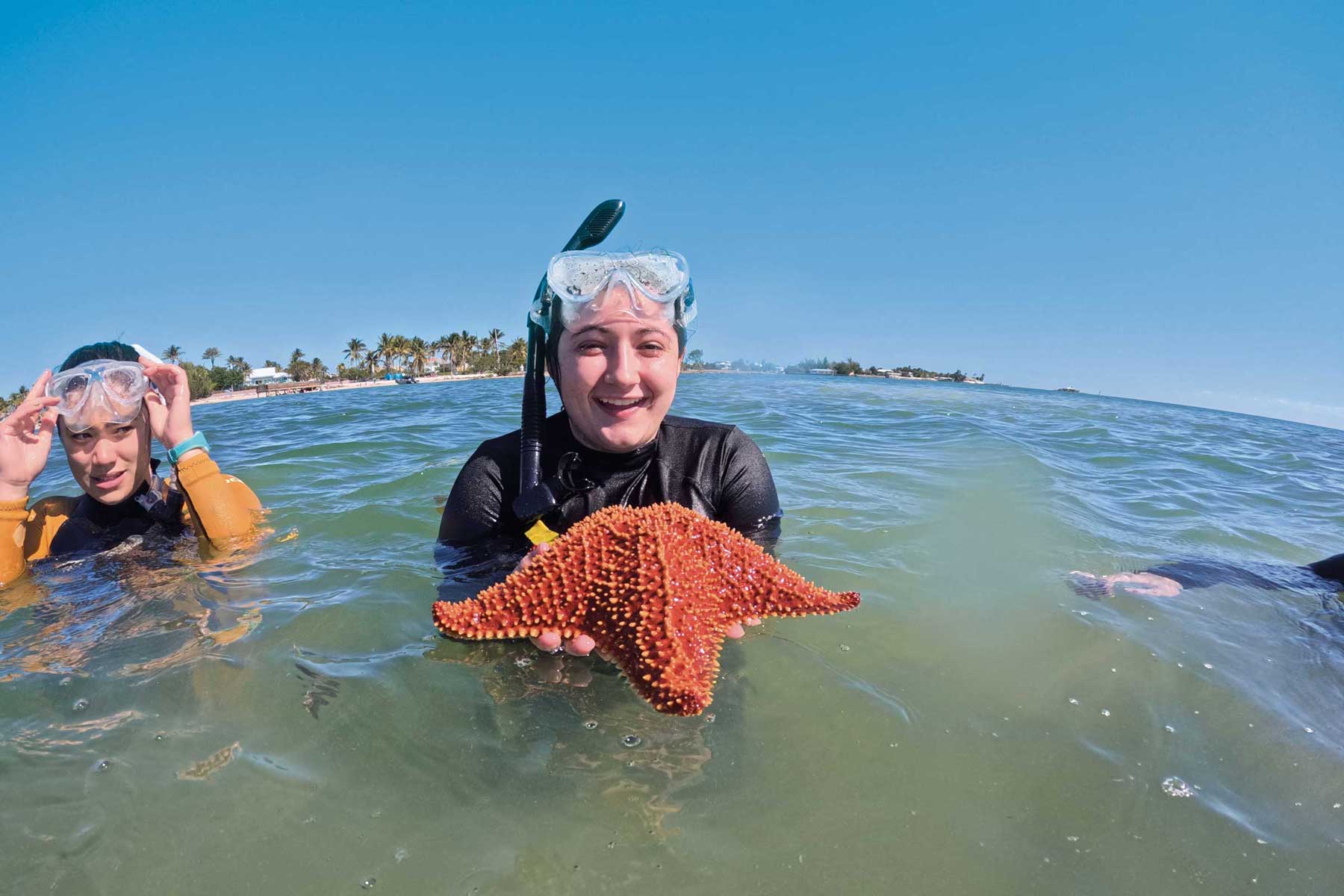
The Keys Marine Laboratory (KML) offers a unique opportunity to study the only tropical marine ecosystem in the continental United States. UW–Madison faculty and students stay in Layton — an ideal location for easy access to Florida Bay, the Everglades National Park, the Florida Current and the Florida Keys National Marine Sanctuary — where they engage in lectures and field-based research projects.
Program participants were eased into the excursion-heavy regimen at the start of the two weeks. The first session they went out from the beach.
“We were in this knee-deep mucky stuff,” says Allison Forsythe (’23), who was part of the same cohort as Tanner. “We saw this giant sea slug that one of our professors got so excited about. He scooped it up on his flipper and was showing everybody. We took it back to the Marine Lab, and it was our little class pet over the trip.”
It took everything that I love and everything I’m continuing to pursue, and it put a magnifying glass on it.
Forsythe, who completed her bachelor’s degree in zoology and is now a student in the School of Veterinary Medicine, says the program itself is phenomenal. She remembers snorkeling every day and seeing urchins, sea stars, reef outcroppings, sea turtles, stingrays, nurse sharks and fish. But in her mind, the best part was the people.
“The instructors who ran it were so passionate about what they did and so excited to be there teaching,” says Forsythe. “The community of it was huge. We were out there snorkeling all day, every day. Everybody was collaborative, and it was such a great group of people. We were all in the same boat together.”
She was referring to the 20 or so people packed in the literal research boat, but it works both ways.
The program was intensive, and they were very much in it together. For Tanner, on a surface level, it was especially cool to experience what it could be like to be a marine biologist — but it also ran deeper than that.
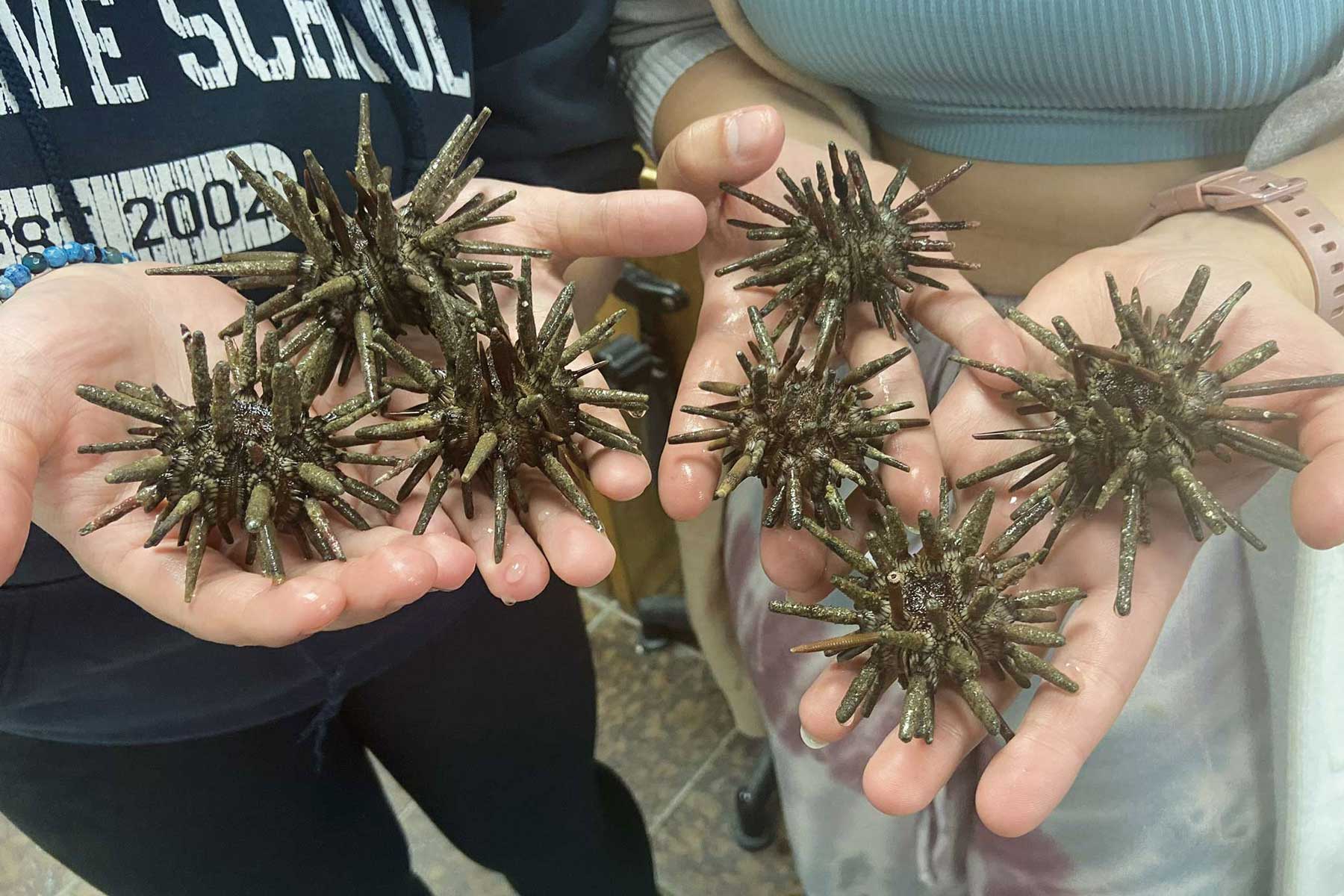
“I have such distinct memories of the times when we were snorkeling,” Tanner says. “It was also such a personal growth journey for me, because there were great moments but also moments when I thought ‘I’m struggling,’ and I had to overcome that.”
In the end, “the ballyhoo incident” made it into the great moment category. Sometimes Tanner dreams about the bioluminescence — how she waved her hand in the water and sprinkles of blue light followed it. Like the fish swarm, she had never seen anything like it in her life.
“I learned how intense the ocean is, yet how calm and balanced it is,” Tanner says. “For me, it was like taking everything you could possibly think about the entire world and how it all connects — the balance between chaos and peace — and putting it in an image for you.”

